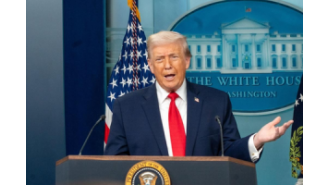Hollywood loses $30B by ignoring diverse audiences.
Over the past 4 years, McKinsey found that Hollywood missed out on $30B by not embracing diverse business strategies.

Over the past four years, McKinsey & Company has conducted three separate reports that reveal a staggering loss of $30 billion for Hollywood due to their failure to embrace diverse business solutions. Specifically, the film industry has missed out on a whopping $10 billion by not engaging with the Black community, $12-$18 billion with the Latinx community, and $2-$4.4 billion with the Asian-American/Pacific Islander community.
According to the Hollywood Reporter, there is a concerning lack of representation for Asian-American/Pacific Islanders in the industry. While the "Asian" category may receive some level of representation, it is often at the expense of Native Hawaiians and Pacific Islanders, who are represented by only five individuals, including well-known actors Jason Momoa and Dwayne "The Rock" Johnson.
In their report released in April, the authors at McKinsey & Company emphasize the significant financial loss companies face by not actively engaging with diverse audiences. They state, "Executives don't necessarily need to act out of altruism, but the potential for real impact and financial gain for the industry is undeniable. It may not be an easy journey, but the potential to tell richer stories and gain billions of dollars in revenue makes a strong business case."
In 2021, McKinsey's report on the lack of Black representation shed light on the lack of diversity in off-camera roles, with one Black executive revealing that the issue carries over into the production of projects as well. This is due to the fact that many former studio executives transition to independent producers affiliated with the studio, perpetuating any existing inequality within the industry.
A Black writer shared their personal experience with McKinsey, describing the challenges of finding an agent who could relate to their perspective as a Black person. They stated, "Despite having a staff writing position on a popular and well-received show, it was still difficult to find an agent. The average agent is a 50-year-old white man who has never had to stretch themselves to see beyond their own experiences. This makes it harder for them to represent people who they don't personally connect with."
In March, McKinsey's report on Latinx representation revealed similar issues both in front of and behind the camera. One Latinx producer shared their frustration with the industry, stating, "There is no shortage of actors or writers. The problem lies in the business side of things - they don't know how to support or market content created by Latinos."
The writers of the report also highlight the interconnectedness of Black and Latinx representation in the industry. Both groups are often responsible for providing opportunities for others within their respective communities. This is evident in the fact that the likelihood of a Latino producer, writer, or lead signing onto a project increases significantly if the director or showrunner is also Latino. Unfortunately, the number of Latino directors and showrunners in the industry is low, limiting the opportunities for Latino talent to thrive.
In a related story, Queen Latifah recently spoke out in support of Taraji P. Henson's fight for equal pay at the NAACP Image Awards. It is clear that the issue of diversity and representation in Hollywood is ongoing and requires action from all parties involved to create real change.
2 Views










